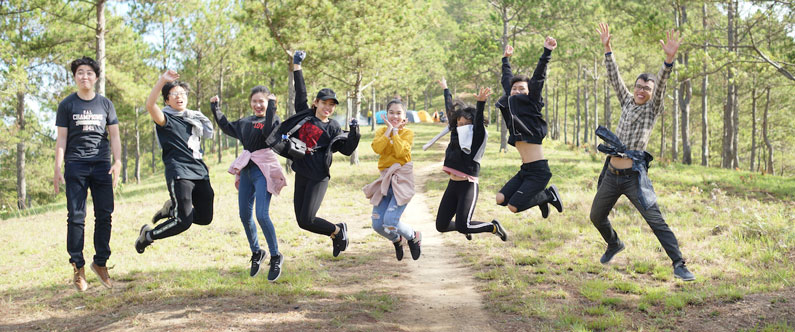Creating global pathways for international mobility

International student mobility in the tertiary education sector continues to grow, with record numbers of international students enrolled and residing in host countries globally. The experience of studying abroad does not come without its challenges and limitations for students, but global education providers are in a unique position to facilitate a new model of international student mobility, removing barriers for students and ultimately improving academic outcomes.
Students face many challenges when they move abroad to study in new, unfamiliar environments.
Forbes-Mewett and Sawyer’s (2011) study found that factors such as unfamiliar academic environments and modes of teacher/student interaction largely influence mental health problems in international students.
Tertiary institutions are increasingly focused on developing new ways to support international students and establish offshore partnerships that provide a more structured pathway for students to achieve their goals. However, changing academic institutions and relocating to a new country can be overwhelming for many students and this has the potential to compromise both study outcomes and wellbeing. Students are often overwhelmed by feelings of homesickness, social isolation, ‘culture shock’ and financial and/or academic pressures.
Global institutions with a network of campuses around the world, have the opportunity to provide students with greater flexibility, choice and access, while still providing the benefits of international education. Students can enjoy a more supported international pathway with a single institution, and the choice of different disciplines and qualification levels.
A considered approach to studying abroad
SAE Creative Media Institute (SAE) is doing exactly this. In 2017 SAE developed its Indonesia-Australia pathway program to meet the increase in Indonesian students looking to obtain Australian tertiary qualifications to strengthen their career prospects. This led SAE to develop its Indonesia-Australia pathway program, which welcomed its first student in 2017.
This structured partnership facilitates a more gradual and supported approach to international mobility. It allows students to commence their studies in their home city, Jakarta, where they are familiar, comfortable and eased into tertiary study. They are gradually prepared for living and studying in Australia. By the time students arrive, they are more mature, accustomed to the demands of tertiary education, and are better equipped to integrate into a new way of life. They are also familiar with the institution and more willing to seek help or support when required.
Importantly, these pathways improve access for international students who may not have been able to study abroad for financial or other personal reasons. Students gain credit from studies completed in their home country, reducing the time needed to complete qualifications in Australia. They can still enjoy the experience of studying abroad but for a shorter period of time, with less financial impact and time away from home.
SAE’s Jakarta campus, located in Pejaten, South Jakarta, offers undergraduate courses in film, animation, audio, music business and design. The institution’s Australian arm predominantly delivers accredited post-secondary Higher Education programs in animation, film, audio, games, design, web and mobile. SAE Australia has six campuses in Brisbane, Byron Bay, Sydney, Melbourne, Adelaide and Perth.
In just two years, more than 20 Indonesian students have either completed or are currently taking part in the program.
Flexible exchanges
Truly global education providers like SAE offer students a supported and flexible international study experience. Recognising that some students want shorter, more intensive study experiences abroad, exchange programs between international campuses enable students to study part of their degree abroad but return home to complete their studies. Students at SAE have studied between campuses in Australia, UK, Germany, Spain, France and the USA.
Build rich, diverse campuses
These programs not only offer learning and life opportunities for international students, but also energise campus life in Australia. International students are vital to creating diverse, culturally rich campus environments where people from all backgrounds and walks of life share expertise, thoughts, values and ideas.
In regional locations in particular, international students provide important knowledge and skills to help meet local employment needs while bringing new customs and traditions that enrich the social fabric of regional Australia.
Meet global employment and skills demand
The creative industries is a thriving global sector that contributes over $90 billion to Australia’s economy and employs hundreds of thousands of professionals. When hiring creatives, employers are not seeking specialist skills but experience in professional work environments and, where possible, a global perspective. Global mobility helps students broaden their thinking, experience creative media in other contexts, and build cross-cultural awareness, communication and professional skills. In the rapidly growing, interconnected creative industries sector these international learning experiences also increase social and professional networks which are critical to life-long career success.
Creating global pathways will become increasingly important for institutions that want to offer their students a more well-rounded, international education. These pathways not only support students in their ability to settle into life abroad, but also equip them with the right framework and network to achieve their academic goals.